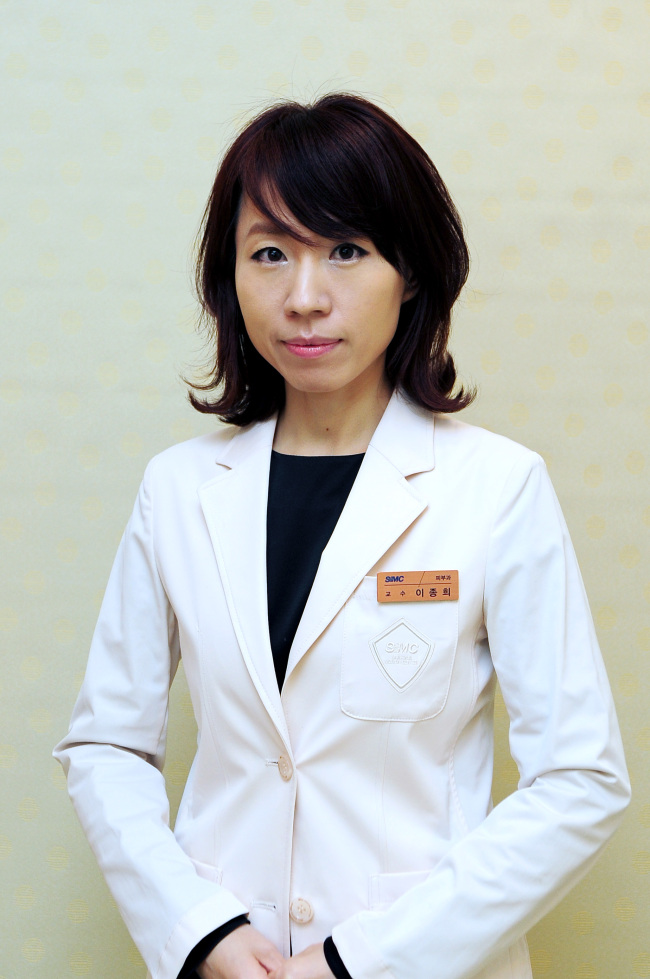
Many people tan during the summer because it makes them look healthy and thin. Spending prolonged hours outside during the summer, particularly during vacation periods, results in skin exposure to the sun.
The sun is the energy source for plants to undergo photosynthesis to maintain the ecosystem. It also helps the skin produce vitamin D. Therefore, sunlight is crucial to living.
However, prolonged exposure to the sun or getting sunburned has its downsides. Prolonged exposure to strong summer sunlight causes redness and a burning sensation on the skin. In severe cases, it can lead to blisters and peeling. This is called sunburn. The symptoms improve within a few days after avoiding sunlight, but one should note that severe or frequent sunburns increase the risk of developing skin cancer.
How can you prevent sunburns? You should avoid outdoor activities between 11 a.m. and 3 p.m., when UV rays are the strongest. You can also use hats, sunglasses and long sleeves to cover up exposed skin areas. It is better to use wide-brimmed hats (at least 10 centimeters wide) for UV ray protection.
Sunglasses are worn as a fashion item, but will also protect your eyes from the sun. Therefore, it is important to check that the product has at least 90 percent UV ray protection. Some products are tinted but do not have UV protection coating, so you should always check that it blocks UV rays.
If you expect sun exposure, make sure you wear sunscreen. SPF is not the only important factor when choosing sunscreen. In fact, products with higher SPF have more additives, which may cause skin irritation. SPF 30 products are appropriate for use when going outdoors. However, sunscreen must be applied every 2-3 hours for effective protection.
If you already have a sunburn, use cold packs (cold water or ice packs) for symptom relief. Other options include using grated cucumbers or potatoes on the skin. Cucumbers help to moisturize and cool the skin, while potatoes help soothe the skin. If you have itchiness, pain or swelling, you should see a dermatologist for proper treatment. Note that if you develop blisters, it can lead to secondary infection, skin pigmentation and scarring, in which case you should see a doctor immediately. Do not burst or peel off blisters. If you cannot go to the hospital, you can use sterile saline available in pharmacies to soak gauze. Place this on top of the blisters for 5-10 minutes to dry up blisters followed by applying topical antibiotics.
Sun exposure also leads to darkening of skin. This is due to the production of melanin pigments stimulated by the UV light. Melanin-producing cells (melanocytes) in the skin help to protect it from the harmful effects of the sun. Skin darkening from sunlight or UV tanning machines leads to the migration of preformed melanin from melanocytes to the skin epidermis, creating a temporary darker skin color. After one week, the melanocytes produce more melanin pigments to create an even darker skin tone. To prevent such skin pigmentation, use sunscreen that also protects the skin from UVA. These products are labeled as PA (protection from UVA), or PA ++.
Darkened skin will gradually return to the original skin tone when the superficial skin cells (stratum corneum) are replaced. This is the time when your skin is prone to dehydration, so it is important to use plenty of moisturizers to maintain healthy skin. Do not exfoliate skin excessively as this can lead to further damage and irritation to the skin.
Sunlight has several effects on the skin through oxidative stress. Therefore it is important to consume plenty of fruits and vegetables, which are rich in antioxidants. Fruits and vegetables with bold colors tend to be rich in antioxidants. Drinking plenty of water will also help maintain healthy skin.
Young children do not yet have a complete protective skin layer, and children who are repeatedly exposed to sunburns have a much greater risk of developing skin cancer later on. Children should use sunscreen specialized for children. Note that skin damage can occur more often after playing in the water, as the sunscreen will wash off and the skin will be dryer.
Make sure to use plenty of sunscreen and reapply frequently during summer activities. Use children‘s moisturizer on the face as well as the whole body during the evening to restore skin hydration.
The sun is the energy source for plants to undergo photosynthesis to maintain the ecosystem. It also helps the skin produce vitamin D. Therefore, sunlight is crucial to living.
However, prolonged exposure to the sun or getting sunburned has its downsides. Prolonged exposure to strong summer sunlight causes redness and a burning sensation on the skin. In severe cases, it can lead to blisters and peeling. This is called sunburn. The symptoms improve within a few days after avoiding sunlight, but one should note that severe or frequent sunburns increase the risk of developing skin cancer.
How can you prevent sunburns? You should avoid outdoor activities between 11 a.m. and 3 p.m., when UV rays are the strongest. You can also use hats, sunglasses and long sleeves to cover up exposed skin areas. It is better to use wide-brimmed hats (at least 10 centimeters wide) for UV ray protection.
Sunglasses are worn as a fashion item, but will also protect your eyes from the sun. Therefore, it is important to check that the product has at least 90 percent UV ray protection. Some products are tinted but do not have UV protection coating, so you should always check that it blocks UV rays.
If you expect sun exposure, make sure you wear sunscreen. SPF is not the only important factor when choosing sunscreen. In fact, products with higher SPF have more additives, which may cause skin irritation. SPF 30 products are appropriate for use when going outdoors. However, sunscreen must be applied every 2-3 hours for effective protection.
If you already have a sunburn, use cold packs (cold water or ice packs) for symptom relief. Other options include using grated cucumbers or potatoes on the skin. Cucumbers help to moisturize and cool the skin, while potatoes help soothe the skin. If you have itchiness, pain or swelling, you should see a dermatologist for proper treatment. Note that if you develop blisters, it can lead to secondary infection, skin pigmentation and scarring, in which case you should see a doctor immediately. Do not burst or peel off blisters. If you cannot go to the hospital, you can use sterile saline available in pharmacies to soak gauze. Place this on top of the blisters for 5-10 minutes to dry up blisters followed by applying topical antibiotics.
Sun exposure also leads to darkening of skin. This is due to the production of melanin pigments stimulated by the UV light. Melanin-producing cells (melanocytes) in the skin help to protect it from the harmful effects of the sun. Skin darkening from sunlight or UV tanning machines leads to the migration of preformed melanin from melanocytes to the skin epidermis, creating a temporary darker skin color. After one week, the melanocytes produce more melanin pigments to create an even darker skin tone. To prevent such skin pigmentation, use sunscreen that also protects the skin from UVA. These products are labeled as PA (protection from UVA), or PA ++.
Darkened skin will gradually return to the original skin tone when the superficial skin cells (stratum corneum) are replaced. This is the time when your skin is prone to dehydration, so it is important to use plenty of moisturizers to maintain healthy skin. Do not exfoliate skin excessively as this can lead to further damage and irritation to the skin.
Sunlight has several effects on the skin through oxidative stress. Therefore it is important to consume plenty of fruits and vegetables, which are rich in antioxidants. Fruits and vegetables with bold colors tend to be rich in antioxidants. Drinking plenty of water will also help maintain healthy skin.
Young children do not yet have a complete protective skin layer, and children who are repeatedly exposed to sunburns have a much greater risk of developing skin cancer later on. Children should use sunscreen specialized for children. Note that skin damage can occur more often after playing in the water, as the sunscreen will wash off and the skin will be dryer.
Make sure to use plenty of sunscreen and reapply frequently during summer activities. Use children‘s moisturizer on the face as well as the whole body during the evening to restore skin hydration.
By Lee Jong-hee
The author is a dermatologist at the Samsung Medical Center in Seoul and a professor at Sungkyunkwan University’s School of Medicine. -- Ed


















